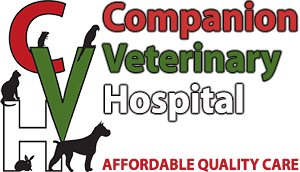Pet Toxins
If an emergency, call one of these numbers
- Pet Poison Helpline: 855-886-7965 (24 Hours a day, 7 days a week (there is per incident fee))
- Companion Veterinary Hospital: 763-755-9255
- Blue Pearl Refferal and Emergency, Blaine: 763-754-5000
Each year thousands of dogs and cats needlessly suffer and many die from accidental ingestion of household poisons, including popular houseplants, medications, common food, and pesticides.
Plant Poisons
Although they may be pretty some plants are poisonous and a few are even deadly. Lily's are especially toxic to cats. Other plants to avoid include:
- Amaryllis
- Azaleas
- Christmas tree pine needles
- Chrysanthemums
- Daffodils
- Easter cacti
- Holly
- Hyacinths
- Mistletoe
- Mulch with cocoa beans
- Oleander
- Poinsettias
- Sago palm
- Tulips
- See www.aspca.org and search “toxic plants” for their list of over 1,000 toxic plants with photos.
Toxic Medications
Acetaminophen is found in more than 200 prescription and nonprescription formulations such as:
- Tylenol
- Hydrocodone
- Lorcet
Acetaminophen is used to reduce fever and pain in humans but can take as little as one pill to kill a cat and can cause kidney failure and liver damage in dogs.
Ibuprofen: Dogs are most commonly poisoned by ibuprofen, enticed by the pills sweet coating. Common brands of ibuprofen include:
- Advil
- Midol
- Motrin
- many other generic formulations
Food
Toxic foods are all over your household. Do you know what they are? Animal Poison Control Center advises that as few as 7 grapes can be toxic to dogs. The exact toxic component currently remains unclear but symptoms can last several days to weeks if you pet responds to the treatment. Not all do.
Other toxic foods include:
- Avocados
- Chocolate
- Coffee
- Grapes
- Raisins
- Nutmeg
- Onion
- Garlic
- Raw salmon
- Xylitol - an artificial sweetner that can be found in sugar-free candy and gum.
Other Toxic concerns
- Antifreeze: look no further than your own garage or driveway. It is a sweet smelling thick liquid and doesn't require a large amount for your pet to get sick. Placing cat litter or sand over a spill will absorb the liquid and stop your pet from licking it. There is also pet safe antifreeze.
- Cleaners: Be careful where you store or discard your bottles of cleaner. Pets can get into low cabinets and many cleaners, particularly those containing bleach or Lysol, can cause very serious chemical burns to the tongue and upper esophagus if licked and consumed.
- Pesticides/herbicides: Consuming pesticides or herbicides can cause a range of symptoms from vomiting and diarrhea, to liver or kidney dysfunction, to chemical burns depending on the product. Keep the bottle out of reach from your pets and use with caution if placing on a surface where your pets walk.
Toxic-Free Tips
A few simple measures can prevent accidental poisoning:
- Use covered trash cans inside and outside your house to prevent access to disposed medications, empty cleaning bottles, dental floss and food,
- Keep pets out of the garage or shed, away from oil, antifreeze leaks, pesticides and herbicides,
- Don't store cleaners under sinks and at Christmas time make sure the tree water is covered so your pets don't drink the water as pine needles are poisonous.


